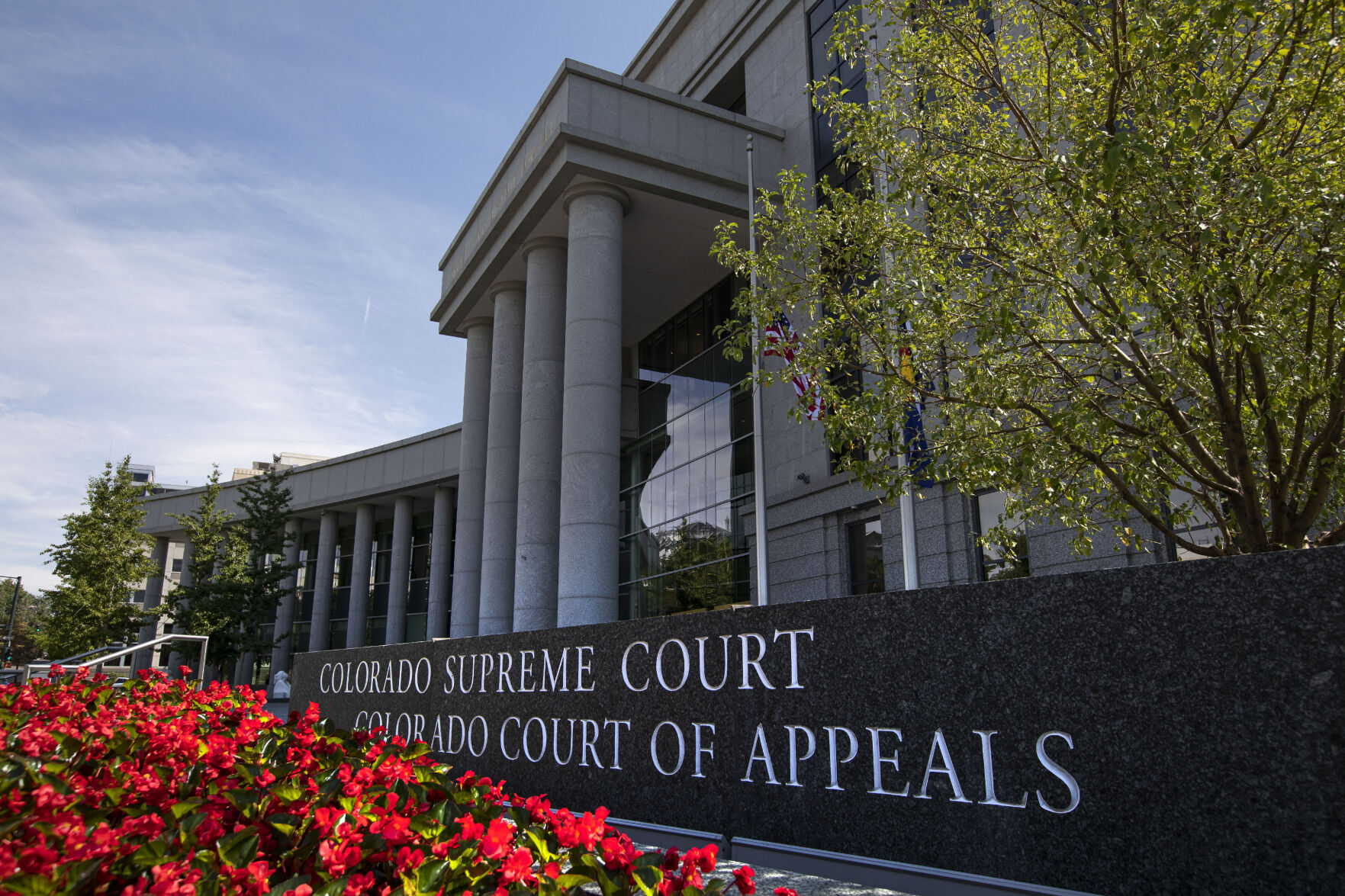Appeals court finds Adams County judge not required to recuse based on prior employment

Colorado’s second-highest court ruled on Thursday that an Adams County judge did not need to recuse himself from presiding over an eviction case solely because his former law firm once represented the landlord in an unrelated lawsuit.
District Court Judge Kyle Seedorf denied on three occasions a request from Rebekah Panzlau to recuse himself from her case in 2021. At the time, Panzlau was facing eviction from the Adams County Housing Authority, which was trying to take control of her unit to remediate a hazardous mold problem.
Panzlau discovered that Seedorf’s old law firm, Taylor Anderson, LLP, previously represented the housing authority in a personal injury suit from another tenant. Seedorf, however, viewed the connection as too tenuous to require him to bow out of the case, and a three-judge panel of the Court of Appeals agreed with him.
“Colorado appellate courts have not addressed whether a judge must be disqualified from a case in which the judge’s former employer, but not the judge himself or herself, represented one of the parties in an unrelated case at the time the judge worked for the employer,” wrote Judge Lino S. Lipinsky de Orlov in the Dec. 29 opinion. “We join other jurisdictions in holding that, under these circumstances, the former employer’s representation of the party ‘with regard to a matter unrelated to litigation before (the judge) does not automatically require recusal.'”
The county’s housing authority, also known as Maiker Housing Partners, owns and manages approximately 15 affordable housing projects and administers affordable housing vouchers to Adams County residents. Panzlau rented one of Maiker’s units in Thornton.
A December 2020 water leak prompted Maiker to discover mold in Panzlau’s apartment. Panzlau temporarily moved to a hotel and Maiker reportedly attempted to have her relocate at Maiker’s expense so it could address the mold. However, she would not do so and, in March 2021, Maiker moved to evict her.
Seedorf, who joined the bench in January 2020, granted the housing authority’s motion. But Panzlau also filed claims against Maiker, alleging negligence, breach of lease contract and other problems related to her landlord’s handling of the mold.
Before one virtual hearing, wrote Panzlau in a motion seeking Seedorf’s recusal, she did an Internet search about Seedorf and found his prior law firm, Taylor Anderson, once represented the county’s housing authority in another personal injury case. She raised the issue with Seedorf at the hearing, who responded that he was not involved with the personal injury lawsuit. He denied her verbal motion to recuse.
Panzlau filed two more motions. In May 2021, Seedorf issued a two-page order addressing the various procedural and ethical rules Panzlau cited. He emphasized the previous personal injury lawsuit ended five years before Panzlau’s own case and Seedorf had never participated in it.
“This case is a forcible entry and detainer proceeding; an entirely different case type from the personal injury action the law firm represented Plaintiff in,” Seedorf wrote. “It cannot reasonably be inferred that the Court is prejudiced or biased against or for either party in this action, nor is there an objectively reasonable basis to find an appearance of impropriety.”
Turning to the Court of Appeals, Panzlau also reported another potential connection between Seedorf and the housing authority. She produced documents reportedly showing Maiker’s current law firm, Fairfield and Woods P.C. represents Bright by Three, a nonprofit organization Seedorf is allegedly involved with.
Her evidence, however, was far from ironclad. She only documented Seedorf’s involvement as of 2006, when he was a board member of Bright by Three’s predecessor organization. Maiker’s attorney denied Fairfield and Woods represented Bright by Three, only finding a connection from 1997 to the group’s predecessor. Further, Bright by Three’s CEO told Colorado Politics that Fairfield and Woods has not represented the nonprofit.
The Court of Appeals panel waved aside Panzlau’s concerns about Bright by Three because she never raised the issue in the trial court. As for Seedorf’s tenuous connection to the housing authority through his former law firm, the panel noted the purpose of recusal is to protect the public’s confidence in the judiciary.
To that end, the Colorado Code of Judicial Conduct advises judges to recuse when they are associated with a lawyer in the current proceedings. The rules of civil procedure also require recusal when judges are so connected with a party or counsel in a case that it becomes “improper.” Finally, judges are also to avoid “impropriety and the appearance of impropriety” at all times.
“Contrary to Panzlau’s assertion,” Lipinsky wrote, “the judge’s impartiality cannot ‘reasonably be questioned’ based on the judge’s prior relationship to the firm because the firm did not represent (Maiker) in ‘the matter’ currently before the court.”
Given that there was no proof Seedorf was actually biased against Panzlau, the panel found no error in his decision not to recuse. The panel also upheld Seedorf’s dismissal of Panzlau’s own claims against Maiker. Because the Colorado Governmental Immunity Act applies to the housing authority, Panzlau had 182 days under the law, after she learned of her injury, to notify Maiker of her claims.
Panzlau participated in a call with Maiker personnel on Jan. 21, 2021 in which she spoke of being exposed to mold. Therefore, she had six months from that date to send her notification. By the time she issued the notice, it was one week beyond the deadline, and the appeals court found her claims were barred.
Panzlau told Colorado Politics she became homeless following the eviction.
“I did everything I was supposed to,” she said. “I had no problem with letting them do the mold remediation in my apartment. I wanted them to do it. I begged them to do it. They are the ones who constructively evicted me and never did any of the work.”
She alleged Maiker failed to remediate the mold and is exposing the current tenants of her apartment to the hazard. Peter LiFari, Maiker’s executive director, responded that the housing authority addressed all issues with the unit, which “resulted in a safe and habitable living environment for the current and all future tenants.”
The case is Adams County Housing Authority v. Panzlau.














